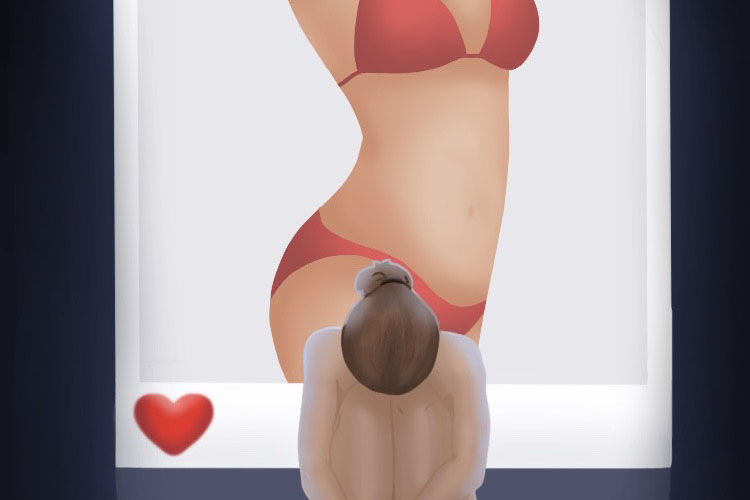The Sexualization of Women on Social Media
How the hypersexualization of women on social media affects young women.
May 5, 2023
In the era of social media, with TikTok present on millions of young girls’ phones, the hypersexualization and exploitation of young women on social media is now more prevalent than ever before. The hypersexualization of young women has become so common and rampant on social media especially, that it is nearly impossible to enter a social media app without finding images or videos that are hypersexualized.
The unrealistic beauty standards of young women affect young girls in irreversible ways, causing teenagers to set unrealistic beauty standards for themselves. When a girl gets thousands of likes on a video or picture, a sense of jealousy can form for other girls. Although it isn’t the fault of the original poster, it can spark those feelings and self image issues. Because the hyper-sexualized versions of young women on social media are everywhere, teenagers especially start to compare themselves, which can lead to body image issues and in turn, young girls start to tie their worth and value into their appearance.
The sexualization of young women in the media is often linked to low self-esteem, eating disorders, and depression. Inaccurate depictions of women in the media can result in cognitive and emotional consequences that reduce confidence and impact teenagers’ abilities to maintain a positive self-image, according to the American Psychological Association. When young girls only see unrealistic and unattainable beauty standards broadcasted over social media, their self esteem lowers tremendously. Because the hypersexualization of women is prevalent everywhere these young girls go, they start to think that they will only be found attractive if they look a certain way.
This issue is heightened with young women of color. When social media and society reflects a eurocentric standard of beauty, the idea that there is a certain way women should look is pushed even more. Growing up without representation is something that deeply affects young women especially because of the nature in which society attributes a woman’s value to her beauty. When men voice their opinions on who they find attractive and who they don’t, they feed into the idea that there is only one way to be deemed beautiful and in turn cause women to resent the way they look.
The hypersexualization of women in the media may also cause women to seek out approval from men. By posting certain things on social media, some women hope to cater to a male audience. It can feel empowering when a woman gets validation from men; however, when women are put on a pedestal by men, they can begin to unhealthily crave attention from men. When society puts pressure on women to be liked by men, this causes them to act in certain ways. It’s a cycle that never ends.
The constant need for validation from men causes women to turn on each other as well. The phrase “pick me girl” is thrown around a lot on social media. While it’s supposed to refer to a woman who puts down other women for men, the meaning has become misconstrued. This phrase often pops up on thirst traps (a video or photograph of someone on social media that is intended to attract attention or make people who see it sexually interested in them). Again, because of the pressure society puts on young women to be liked by men, when a girl gets attention from guys, a sense of jealousy forms for other women. This causes them to attack these people for something as simple as wearing a shirt that shows their cleavage. Ironically, this can cause men to turn on these women as well. This causes young women to feel alone and for their self esteem to decrease rapidly.
Whether someone posts something intending to be sexualized or not, nobody should feel like their entire worth is tied to their appearance. These unrealistic standards that are pushed onto teenage girls to a large extent are incredibly harmful and only add to the list of issues that social media causes for teenagers. Internalized sexualization and self-objectification often lead to mental health issues, body image issues, and even can cause teenage girls to lose their aspirations to do well in school. The issues concerning the sexualization of young women and the sexualization itself aren’t going to go away, but once people start to think about the things they’re consuming on social media and their effects, action can be taken to protect young women.



































